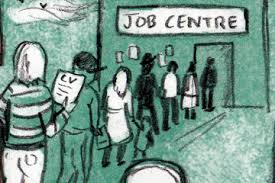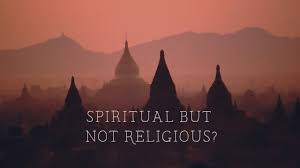
There’s Injustice, then there’s Structural Injustice
Most of us have experienced bullies, the kids who pick on other kids in school and other places. We’ve seen such bullies smack other kids, brazenly take a kid’s lunch or call a vulnerable child an insulting name. That’s injustice.
But if a teacher observes such behavior and does nothing, or the teacher reports it to the school administrators and they do nothing, that’s structural injustice.
If we look closely, we can see structural injustice on a large scale in our society. It’s so pervasive, however, you may not be able to see the forest for the trees. The pandemic has made it easier to see, clearly showing that structural injustice is the “pre-existing condition” that has made the nation so vulnerable.
Is This About Politics?
Whoa! Is this a blog about the search for God or about politics? The fact that “justice” is debated by both political parties, or the fact that most of us think only about public safety when we hear or read justice, doesn’t make it political. No, it’s about justice, the principal or virtue, promoted among all the major religions and especially endorsed in the Hebrew and Christian Bibles.
Among other religious leaders, Pope Francis has frequently talked and written about structural injustice. In a homily at the Vatican earlier this year, the pope once again blamed the structural injustice of the global economy for victimizing the poor.
“It is a part of the cityscape to have poor people,’” Francis is quoted by the Catholic News Agency. “However, the vast majority of the poor are victims of economic policies, of financial policies. Some recent statistics make the summary like this: there is a lot of money in the hands of a few and so much poverty (among) many … and this is the poverty of so many victims of the structural injustice in the global economy.”
The pope told the story of visiting an abandoned factory in Buenos Aires where middle-class families took refuge after being evicted for not paying rent.
“They went there because they could not pay the rent. The new poor, who must leave (their homes) because they cannot pay, go there. It is that injustice of the economic or financial organization that (makes it) so.
The Heart of the Gospel
‘And this is not being a communist, this is the heart of the Gospel: we will be judged on this,’” the pope added.
So how does structural injustice affect the pandemic? Look at government spending for health care, nursing homes, prisons, and unsafe conditions in factories, such as packing plants. (Say what you will about “expecting government to solve all our problems.” It’s the only entity capable of doing anything significant for such a large, complex country.)
In an interview with National Public Radio, Ed Yong, a science writer for Atlantic Magazine who has spent the past seven months covering COVID-19, says that the vulnerability of people in nursing homes and prisons is “not just to do with their architecture. It also has to do with how we think about people in those spaces: who we ignore, who we marginalize, and whose lives we truly care about.
“In prisons, there’s this very densely packed population that is under-served in terms of its health that was obviously going to be incredibly vulnerable when a fast-spreading virus like this hit the country. It should be no surprise that prisons became hot spots.
Truly Shameful
“And the same could be said for nursing homes. The fact that nursing homes account for more than 40 percent of deaths from COVID-19 in America is truly shameful. I think it reflects our attitudes to the oldest among us — people who we should be giving respect and care to, but instead who we often neglect.”
Nursing homes, he said, “are underfunded and understaffed, and … were not the recipient of extra disproportionate support and attention when this pandemic started spreading. And they should have been. The people who work and live in those nursing homes and other long term care facilities paid the price for that neglect.”
Unless they affect us personally, we may react to these problems with indifference. But the remedy for “structural injustice” for people of faith and people searching for God is, first, to take an interest in resolving the structural injustice in society, and, secondly, to take action, lovingly and gently expressing our opinions, and voting.




